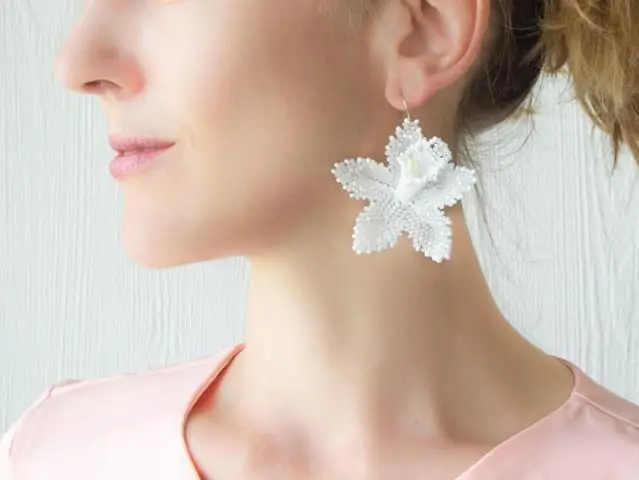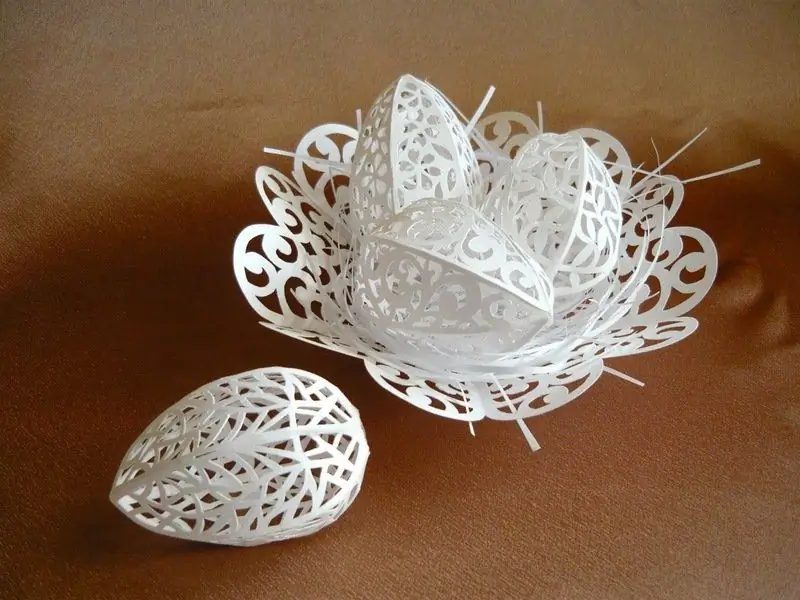
Table of contents:
- Author Bailey Albertson albertson@usefultipsdiy.com.
- Public 2024-01-17 22:26.
- Last modified 2025-01-23 12:41.
DIY roller blinds - detailed instructions

Today, choosing the right curtains for your home is no problem. You can buy any model, color; the variety of types of fabric also gives space for imagination. But why not take the opportunity to sew such a product yourself? Roller blinds are very easy to make, and you can use them to add a special chic and style to any room - from the kitchen to the living room.
Features of curtains and suitable fabrics
Designers argue that blinds are not the best option for living spaces, they are more suitable for an office. These devices are being replaced by roller blinds, which are just as easy to use, but at the same time cozy and home-like. It is very easy to sew them, and even easier to install.
Many people confuse roller blinds with Roman ones, and even consider them the same. Yes, these products have a lot in common both in appearance and in the principle of attachment to the surface and the manufacturing process. However, there is a significant difference between Roman and roller blinds. It consists in the following: for the first product, folding is ensured due to sewn-in strips, according to the accordion principle; the second type of curtains is twisted into a roll, along the length of the canvas there are no slats that provide rigidity.
Installation of such a curtain can be done in three ways:
- on the wall;
- above the window;
- onto the frame.
It is especially easy to attach such a curtain to a plastic window. The cassettes installed on the frame do not interfere with the operation of the window sash, and the U-shaped guide holds the fabric tightly, keeping it taut.
The same guides can be found on roller blinds attached to the wall. This mounting option provides protection against drafts. The use of opaque materials creates a complete blackout effect.

Roller blind: front and back view
Almost all materials can be used for roller blinds, but it is better to purchase a special fabric impregnated with an antistatic or antibacterial composition. This is especially true for products that will be used in the kitchen or bathroom. By the degree of transparency, these fabrics can be:
- transparent;
- translucent;
- blackout.
The range of patterns and colors is unlimited.
The most popular fabric for sewing roller blinds is polyester. Antistatic impregnation eliminates adhesion of polyester to the canvas. You can choose from a metallic finish or a soft pearlescent sheen.

You can use any fabrics for sewing roller blinds
Teflon coated cloths are very easy to clean due to their dirt and water repellency. There are also fabrics with fire protection.
Sewing products
In our master class, we will tell you how to sew a simple roller blind. This option does not require high costs and special skills in tailoring from you.

Simple roman blind
Necessary materials
- Cuts of fabric of different types or colors for the face and wrong side - 2 pcs.
- Wooden bars equal to the width of the window frame - 2 pcs. (for attaching the curtain and making it heavier).
- Scissors.
- A centimeter or ruler.
- Cord.
- Ring screws - 5 pcs.
- Hook screws - 3 pcs.
- Threads, needles, sewing machine.
Step-by-step instruction
- Measure your window frame. According to the calculations obtained from the prepared fabric, cut out two segments with the required dimensions. Leave stocks for seam allowances: 10 cm in length and 3 cm in width.
- Sew two pieces of fabric inside out. Leave one end unsewn, turn the product through it. Tie off the section, iron the curtain with an iron.
- Choose which side of the future curtain will be directed to the wall. This will be the front part.
-
Place the product face down on a flat surface. Sew the "pockets" for the planks: fold the edges of the curtain 1.5 cm from the bottom, 3 cm from the top, sew, insert the planks inside.

Sewing roller blinds Sew the edges of the garment and insert the planks
-
The top bar will serve to secure the product to the wall. Carefully screw two ring screws into it through the fabric from above, and two more screws from the front side. Step 5 cm from one edge of the plank and screw another ring into it.

Installing the retaining rings on the curtain Screw rings into the strips
- To roll up the roller blind, you need to attach a cord. Unwind and cut the two cords. The length of one should be equal to three lengths of the curtain, the other should be the same plus 1/2 the length of the curtain.
-
Thread the cords into the rings on the fastening bar. Remember: the longer cord must be tied to a ring farther from the common side ring.

Securing the cords to the bar Fasten the cords that will adjust the roll of the curtain
-
Pass the cords along the seamy side of the curtain, pass through the ring screws. Pull out through a common side loop, tie the cords together.

Securing the cords Pull the cords out and tie them
If you want to hang the roller blind on a plastic window, first screw two screws into the frame. They should be located strictly opposite the upper rings located on the curtain. Hang the product. Screw another hook screw into the frame on the side: you will wind the cord of the curtain rolled into a roll on it.
Gallery of roller blinds for living rooms
-

Tropical style roller blind - Tropical style roller blind
-

Bedroom with roller blinds - A great addition to the bedroom interior
-

Roller blinds - Roller blinds - a simple solution for any room
-

Curtain on a plastic window - Roller blinds are easily attached to the sashes of plastic windows
-

Kitchen with roller blinds - Roller blinds in the interior of the kitchen
Such an easy-to-manufacture and care product, like a roller blind, will surely please many housewives. By choosing the right color and pattern, you can easily give your room a completely new, original look. Share with us in the comments your ideas for sewing roller blinds. Good luck!
Recommended:
Master Class For A Cat Lover: How To Make A Collar For A Pet With Your Own Hands

Cats have long and firmly entered our life as pets. These cute animals cheer us up, keep us company and even treat! And we also love to please them with something special. Pets, like humans, have their own fashion, and a collar is a must. Today we will tell you how to make a collar with your own hands []
How To Make An Orchid From Mastic: A Master Class With Photos And Videos

Step-by-step master classes on making some types of mastic orchids. Necessary materials and tools, photos and videos
How To Make Soap At Home With Your Own Hands: Making Solid, Liquid, From A Soap Base And Not Only, Master Classes With Photos

Making soap at home with your own hands. What can be done, what components are required, step-by-step master classes with photos
DIY Easter Wreath: What To Make, Ideas, Master Class, Photo

What is an Easter wreath. What is needed to make an Easter wreath, materials. Types of bases for a wreath. How to decorate an Easter wreath. Ideas
Vytynanka For Easter: Templates For Cutting Out Of Paper, A Master Class, Photos Of Finished Works

What vytynanka for Easter you can make with your own hands: ideas, templates, descriptions, photos
